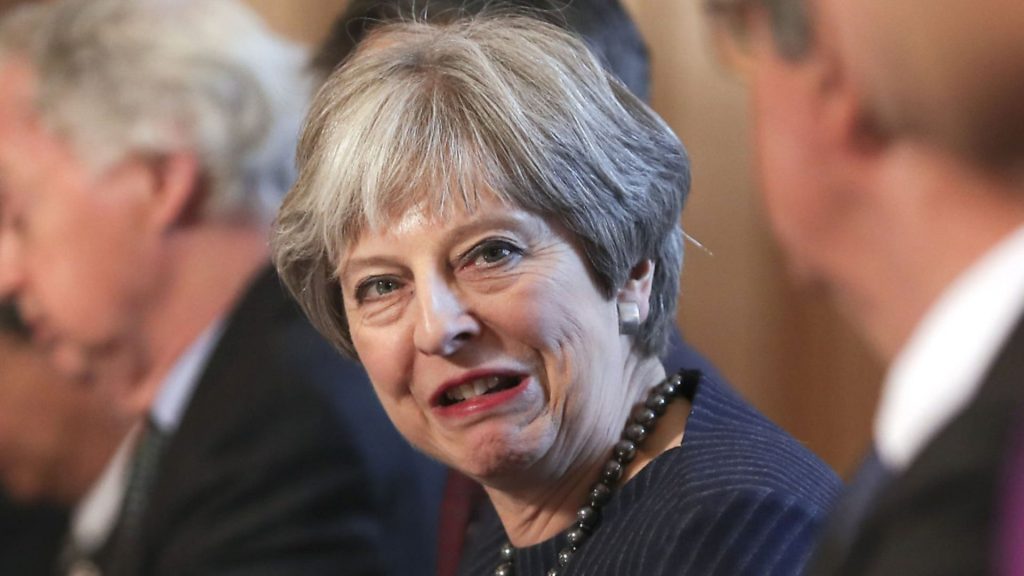
Why Labour and Tory propositions on Brexit are much less than they appear.

If you’re a politician, or a toddler, it is possible that you now believe we’ve been presented with two rival visions of Britain’s post-Brexit future – one agreed by Theresa May and her cabinet in Chequers, another set out by Jeremy Corbyn.
Inevitably, despite both attracting reams of coverage – and opposing cries that each would make Brexit a success, or inevitably cause the collapse of the nation – both propositions are much less than they appear.
The government proposal is for ‘ambitious managed divergence’ with the EU over the future direction of British rules and regulations. It’s hardly a flashy name for a plan for the future of the nation, and it’s especially a bad sign when a plan contains two clashing adjectives.
‘Ambitious’ is there to reassuring Jacob Rees-Mogg and his hard Brexiteers – a low-budget musketeers remake if ever there was one – that the government isn’t proposing business-as-usual after the UK leaves, and would change some regulations, even if they won’t specify any details as to which, even as cabinet ministers contradict themselves on whether they want a free-wheeling, free-trading future; or to keep or strengthen the consumer, workers, and environmental protections we have now.
‘Managed’, meanwhile, is there to calm the Tory faction in favour of a soft Brexit, or even not leaving the EU at all: it’s a soothing balm, promising MPs that the government does not wish for its regulations to diverge too far from the EU’s – a formal version of David Davis’ ambitious pledge that Brexit won’t result in a ‘Max-Max style dystopia’.
In other words, neither word amounts to very much at all: they’re window dressing, ways to try to signal to different factions that they’re getting some but not all of what they want. The key word is ‘divergence’: May is not wavering in her desire to leaving the single market and customs union.
Her plan instead relied on three ‘baskets’ of regulations: in one area, such as on aerospace and cars, the UK and EU would continue to keep the standards, and enforce them through the same regulations. In a second group, the UK and EU would agree the same aims, but achieve those through independent sets of rules. Finally, there would be some areas under which UK and EU standards would totally diverge.
This might sound good, until you remember that the EU has had one clear negotiating position from the earliest days: it does not want to allow the UK to ‘cherry-pick’ the bits of the single market it most wants – like access to financial markets and clearing – while cutting off the ones it doesn’t, like free movement of workers.
May’s ‘three baskets’, or ‘ambitious managed divergence’ are just a less catchy way of asking to cherry-pick, yet again – so much so that it’s getting referred to in some Brussels quarters as ‘advanced have-your-cake-and-eat-it theory’.
The headlines coming from Corbyn’s speech make it look like his position is much clearer: Labour’s leader appears to have finally come out in favour of staying in the customs union, a crucial issue for much of UK manufacturing, and a key part of preserving the current open Irish border.
The reality is a bit more fiddly: Corbyn called for preserving the ‘benefits’ of the single market, and for ‘a EU/UK customs union’, distinct from the customs union the UK is in at present – but wants some independence on trade deals, including input on EU trade deals and the ability for the UK to forge its own.
Corbyn also wants exemptions from the EU relating to some EU workers in the UK, and on the ability for the state to subsidise industries – he has argued several times Labour could not have delivered on its nationalisation promises within the EU, a claim others have heavily disputed.
This all essentially means Corbyn is making a similarly Goldilocks set of pledges for what he wants Brexit to deliver: all the benefits the UK gets from membership now, but without any of the bits that the public dislike. If the EU were to allow such a thing, they would risk letting the UK deliberately subsidise and undercut EU competitors, then sell those goods in EU countries tariff- and customs-check free. That would be a hell of a good deal.
Labour’s position is good domestic politics – a wise move from an opposition party – and parts may form the basis for a possible negotiation with the EU. But in policy terms, the detail still looks an awful lot like cherry-picking, and the EU did not hurry to respond positively to Corbyn’s speech.
Ultimately, there is no Brexit deal that will satisfy all sides, and it’s possible there’s no achievable Brexit deal that will appease any side of the argument. But the efforts of parties to appease all sides right now is doing nothing more than preserving a muddle. It’s often said no battle plan survives contact with the enemy, but so far no UK negotiation strategy seems to survive long enough to even make contact with the EU. Will any political party start taking Brexit seriously?
Warning: Illegal string offset 'link_id' in /mnt/storage/stage/www/wp-includes/bookmark.php on line 357
Notice: Trying to get property 'link_id' of non-object in /mnt/storage/stage/www/wp-includes/bookmark.php on line 37







